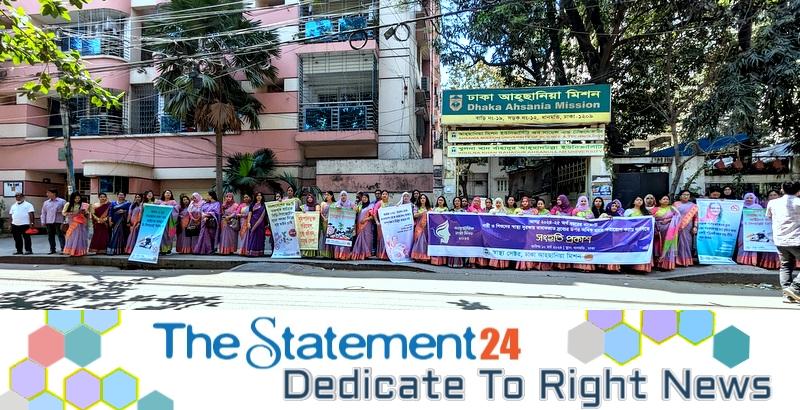
Dhaka Ahsania Mission (DAM) rallied in front of its head office in Dhanmondi on Monday morning, urging for an increase in tobacco tax rates in the upcoming fiscal year 2024-25 budget. This demand aims to safeguard the health of women, children, and youth.
Speakers at the event highlighted the critical importance of imposing a higher tax on tobacco products. They emphasized that such a measure could prevent approximately 1 million young individuals from taking up tobacco use and save about 500,000 young lives from premature death. Additionally, it is estimated that enforcing higher taxes could generate an extra revenue of around 10 thousand crore taka. Moreover, it was noted that if the existing tax structure on tobacco products is reformed as recommended in the next budget, cigarette consumption would decrease from 15.1 percent to 13.80 percent.
Every year, tobacco consumption claims the lives of 8 million individuals globally, with 161,000 fatalities occurring in Bangladesh alone. Shockingly, 1.2 million people fall victim to passive smoking, exacerbating the risk of heart disease by 85 percent. Moreover, women face a 25 percent higher likelihood of developing cancer and heart disease due to tobacco exposure.
Citing data from the World Health Organization, speakers emphasized that out of the 1 billion smokers worldwide, 200 million are women, and approximately 220 million women succumb to tobacco-related illnesses annually. Alarmingly, more than 71 percent of these women reside in middle- and low-income countries like Bangladesh, where the risk of tobacco-related diseases and mortality remains disproportionately high.
Furthermore, smoking rates among women are on the rise globally, with 80 percent of individuals affected by tobacco-induced environmental damage and climate change being women.
Dhaka Ahsania Mission urges policymakers to prioritize public health by implementing higher tobacco taxes, thereby safeguarding the well-being of the populace, especially vulnerable groups like women, children, and youth.

